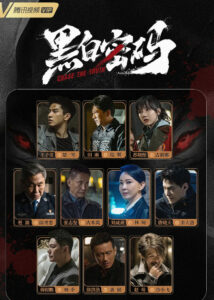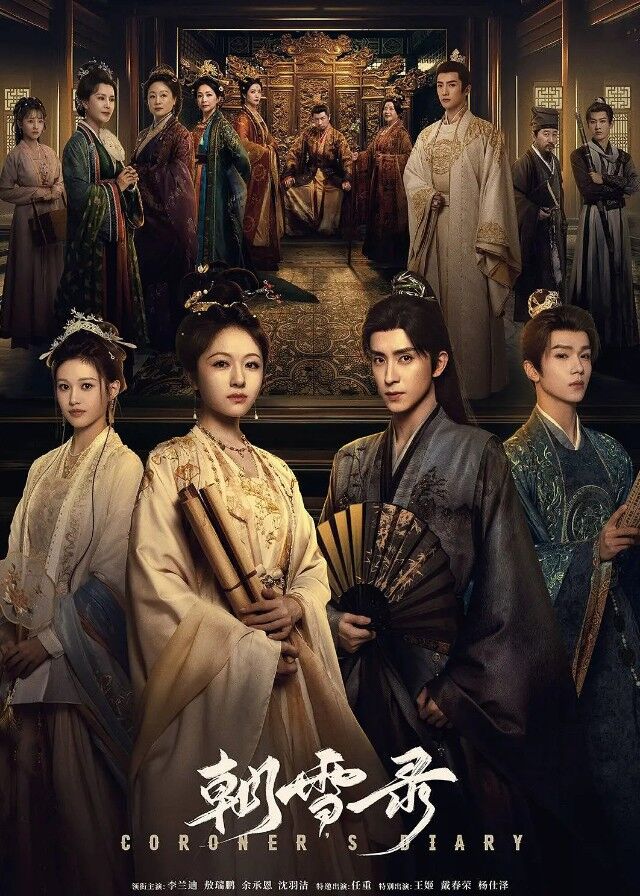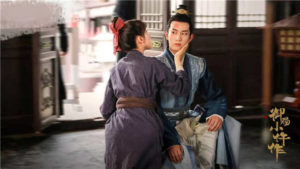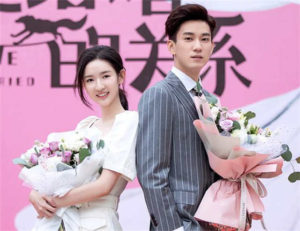The Imperial Coroner Episode 34 Recap
> The Imperial Coroner Recap
Chu Chu faced the imperial power with neither servility nor arrogance, personally presenting the waist token carried by the deceased eunuch. It turned out to be from the imperial palace attendants, all under Qin Luan's jurisdiction. Qin Luan panicked at the sight and wanted to continue defending himself, but before he could even speak, he was rebutted by Xiao Jinyu into silence. Emperor Xuanzong of Tang discerned right from wrong and immediately ordered Qin Luan to be imprisoned.
He also held Han Ji accountable, removing him from his position as Minister of Justice, demoting him two ranks, and sending him home for half a month of reflection. Han Ji repented after this incident, realizing he had been deceived by villains and had wrongly served as a judicial official. He finally apologized to Xiao Jinyu, and the two reconciled silently.
Because Qin Luan's case was long-standing and involved many people, and also because Xiao Heng was implicated, considering his relationship with Xiao Jinyu, Emperor Xuanzong of Tang instructed Grand Secretary Jing to preside over the investigation, with the Three Judicial Offices assisting. Qin Luan's calm reaction after being arrested made Xiao Jinyu suspect he had a backup plan, warning Grand Secretary Jing to be extra cautious. With the wrongful case reopened, Princess Xiping finally put a worry to rest.
Moreover, this was originally her imperial son-in-law's last wish. Chu Chu also voluntarily returned the stone pendant; the two merged stones were the token of betrothal he used to seek the princess years ago. Xiao Jinyu learned through Chu Chu that he was Chen Ying's son, but he still regarded Princess Xiping as his birth mother. He was grateful for her years of nurturing and hoped to continue staying at the Xiao residence to serve Princess Xiping.
Even though the plan changed, Xue Rucheng still had a counter-strategy. Qin Luan, on the other hand, entered Dali Temple Prison as if he were returning home, dancing and humming a loose beat all the way to Grand Secretary Jing.
No matter how Grand Secretary Jing interrogated him, Qin Luan remained unhurried, even attempting to win over Grand Secretary Jing, asserting that the Emperor of Great Tang had a title but no real power, like flowing water that could change at any time. Xiao Jinyu observed Qin Luan from behind the interrogation room wall, discovering that he was constantly watching the clepsydra and calculating the time.
This indicated that the other party had made thorough preparations in advance, and if he couldn't return to the palace at the appointed time, there might be a change in the palace. Grand Secretary Jing and Jing Yi, following Xiao Jinyu's method, deliberately staged a "regicide" drama in front of Qin Luan, successfully extracting crucial clues from his mouth. After Grand Secretary Jing and the others left, Xiao Jinyu personally came to Dali Temple Prison.
Seeing Qin Luan still feeling smug, he shattered his scheme with just a few words. Compared to Qin Luan's cunning and treachery, Grand Secretary Jing was even more resourceful. He had anticipated that disrupting the clepsydra would be useless against Qin Luan, so he simply turned the tables, forcing Qin Luan to seal his own fate.
Despite this, Qin Luan was still fantasizing about the palace coup, believing that even if Xiao Jinyu possessed extraordinary abilities, he could never assemble troops within two ke.
However, just in case, Xiao Jinyu had long prepared two backup plans: first, betting that Qin Luan, having lived in the palace for a long time, was unfamiliar with the route from the Imperial Medical Bureau to Dali Temple Prison; second, asserting that Qin Luan was unfamiliar with the interrogation room of Dali Temple Prison.
The current location was actually the Yeting Prison within the palace, which meant it would take less than half a ke from here to Jiangshan Hall, and soldiers had already been ambushed all around, just waiting for the rebel army to appear. After Qin Luan learned the truth, his emotions became agitated. He then threw his head back and laughed loudly, crashing into a wall and dying. All of Qin Luan's followers were captured.
Emperor Xuanzong of Tang narrowly escaped death and couldn't help but sigh that he had been protected by his Third Brother. At the same time, he commended the young eunuch Jin Bao, who had been undercover near Qin Luan for a long time, which allowed him to glimpse Qin Luan's ambition.
However, not long after Qin Luan's death, Zhou Han suddenly disappeared, and even the Divine Strategy Army was missing a large number of people, clearly indicating they had defected to Xue Rucheng.
Knowing full well that Zhou Han would be like adding wings to a tiger for Xue Rucheng, Xiao Jinyu still patiently awaited his opportunity, even instructing Wu Jiang to secretly escort Zhou Han out of the city, just waiting for him to become an advantageous move in the future. Meanwhile, Xue Rucheng incited the crowd in the name of Prince Chang.
Jing Yi investigated and found that Li Zhang's mother was once an embroiderer in Prince Chang's residence, and Zhao Jie's father was once a guard in Prince Chang's residence. As for the others, they all died in that coup, which is why they followed Xue Rucheng in rebellion. That year, Prince Chang left the palace due to smallpox, and before he left, he was treated by Imperial Physician Zhang Shu.
Therefore, why Zhang Shu was suddenly murdered was clearly related to Prince Chang's secret. As for the "Prince Chang" Xue Rucheng, who now wanted to force a palace coup, his true identity was Xue Tang, a household servant of the princely mansion. Precisely because Xue Rucheng had plotted for many years, seeing the throne just one step away, he would achieve his goal even if it meant snatching chestnuts from the fire.
Due to being unable to coordinate with Qin Luan from inside and outside, coupled with limited manpower, and an inability to accurately obtain information about Emperor Xuanzong of Tang, he could only seek suitable opportunities, such as extremely small banquets that could gather the emperor, imperial relatives, and loyal officials.
















